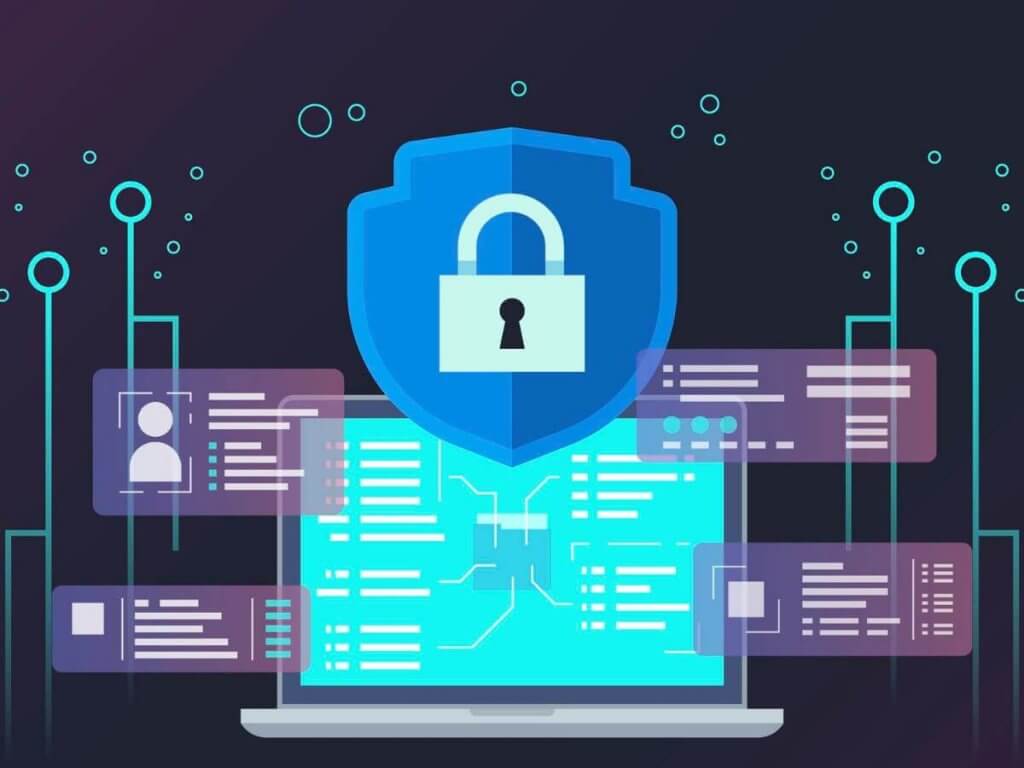Technology and the internet have advanced quickly. Online users now have greater access to tools and digital services than ever before, giving them access to a level of knowledge and ease that was previously unheard of.
However, a rise in cyber threats has coincided with the internet’s rapid development. The hazards to online security range from people having their credit card numbers taken to significant corporate data breaches, but systems are in place to thwart these attacks. Digital safeguards are known as network security to protect internet users while they are online.
Read more: Cyber Crime in Malaysia.
What Is Network Security and Why Is It Important

The word ‘network security’ is broad and encompasses a variety of technologies, tools, and procedures. Software and hardware technologies can be defined as a collection of guidelines and configurations intended to safeguard computer networks and data’s reliability, accessibility, and integrity. Every organization needs network security solutions to protect it from the ever-expanding landscape of threats and vulnerabilities that exist in the wild today, regardless of size, industry, or infrastructure.
Today’s network architecture is complicated; it must contend with an ever-evolving threat environment and attackers who are constantly looking for and trying to exploit flaws. These flaws may exist in many things, including equipment, data, apps, people, and places. Due to this, numerous network security management systems and programs are in use today that address regulatory non-compliance and specific threats and exploits. These protective measures must be in place since even a brief downtime can result in significant disruption, harm to an organization’s brand, and financial ruin.
Network security is crucial for both personal and professional networks. Most houses and offices with high-speed internet have one or more wireless routers, which can be vulnerable to attacks if they are not adequately secured. A robust network security system can decrease data loss, theft, and sabotage risk.
Main Threats and Vulnerabilities to Businesses’ Networks

In the simplest term, a computer system vulnerability is a flaw or weakness in a system or network that an attacker could use to harm or influence it in some way.
Read more: Cybersecurity Threat.
The method used to exploit a computer vulnerability depends on the vulnerability’s characteristics and the attacker’s objectives. These faults might be caused by unexpected interactions between many software applications, system components, or fundamental errors in a particular program.
To assist you in learning what to look for, the following examples of network security threats and vulnerabilities are provided:
Viruses are nefarious programs designed to alter the behavior of your software or computer system. Since they are built to travel between hosts and from one computer to another, your entire network is at risk if even one of your computers gets infected.
One of the most prevalent types of malware is computer worms. They spread over computer networks by taking advantage of operating system flaws. To affect their host networks, worms often consume bandwidth and overburden web servers.
A cybercriminal sent the email, and the file you downloaded, opened, and clicked on caused trojan malware to be installed on your computer. The infection can spread to other files when you run the program, breaking your machine.
Spyware is the seemingly trustworthy application you could download for your vital company operations. However, the embedded virus in these products can compromise security and copy private information.
Adware, in a nutshell, is a cunning sort of software to trick your browser into visiting websites and adverts you didn’t plan to see. If you see the same ad repeatedly on various websites or if you experience a lot of intrusive pop-up adverts, the adware may be present.
Like worms and viruses, ransomware can spread throughout a network. Until a stated ransom demand is satisfied, this malicious program has the power to lock you out of your computer’s apps or your entire computer system.
Comprehensive Security Solution That Covers All Aspects of Your Business

In Malaysia, Spectrum Edge is the top IT Security solutions distributor. To offer the most excellent security solutions via technology to Malaysia, Spectrum Edge works with its partners and provides the entire area with innovative technology providers.
We, as a value-added distributor, work with an extensive network of resellers and system integrators to provide the best solutions to end users. Network security, firewall security, endpoint security, and other specialized information security solutions are all distributed by Spectrum Edge!
So why are you still waiting? Contact us to safeguard your network.
Various Solutions to Protect Your Business From Cyber Attacks

As a business owner, you are likely aware of the threat of cyberattacks. Hackers can target your company in a number of ways, from stealing customer-sensitive data to taking control of your website. While there is no guaranteed way to protect your business from these attacks, there are a number of steps you can take to minimize the risk.
Firewalls are programs that isolate your data from the outside world. Firewalls shield your company’s network against unwanted access and notify you of any incursion attempts.
Firewalls can be an effective way to protect networks from many different types of attacks, but they are not perfect. Firewalls can be bypassed and cannot always detect or block all types of malicious traffic. However, when appropriately used, firewalls can be an important part of a comprehensive security strategy.
Read more: Firewall Security.
Software-Defined Wide-Area Networking, or SD-WAN, is a method for using software to enhance the intelligence and adaptability of wide area networks. Typically, it uses commodity broadband links to connect sites directly to the internet rather than private lines to route all traffic back to a regional office (often based on older, expensive technology known as MPLS).
It is unnecessary to manually administrate each WAN device individually because configurations and access controls are centrally maintained and quickly implemented across all sites.
Read more: SDWAN or Software Defined Wide Area Network.
Cross-site scripting (XSS), SQL injection, and cookie poisoning are a few application layer assaults that a web application firewall (WAF) guards against. Attacks on apps are the main reason for breaches since they open the door to your sensitive data. You can stop the attacks that try to steal that data by infiltrating your systems by putting the proper WAF in place.
By filtering, monitoring, and blocking any malicious HTTP/S traffic headed toward the web application and preventing unauthorized data stored from exiting the app, a WAF safeguards your web apps.
It accomplishes this by abiding by a set of policies that assist in distinguishing between safe and malicious communications. Similar to how a proxy server functions as an intermediary to safeguard a client’s identity, a WAF—also known as a reverse proxy—operates similarly to act as an intermediary to shield the web app server from potentially harmful clients.
Read more: WAF or Web Application Firewall.
Securing ‘endpoints,’ or end-user devices, like desktop computers, laptops, and mobile devices is referred to as endpoint security. Threat actors can use endpoints that aren’t protected from breaching an organization’s network security.
When was the last time you examined your endpoint security? Now that you know the definition of endpoint security. What level of assurance do you have that endpoint security will defend your company from a cyber security attack?
Today, no company is safe from a cyberattack. The human factor was implicated in 85% of breaches, according to Verizon’s 2021 Data Breach Investigations Report. Therefore, understanding that breaches are a big security problem for enterprises of all sizes is the first step toward endpoint security.
Read more: Endpoint Security.
Historically, there were two types of first-order cybersecurity defenses: monitoring and management. SIM stands for security information management and refers to the systems and procedures that businesses set up to keep track of their security environment. SIM primarily focuses on locating and tracking potential infiltration points and threat vectors.
On the other hand, Security Event Management (SEM) is what you do following the detection and logging of an intrusion or assault. It’s how you react to and, yes, control the situation.
The fusion of SIM and SEM to create SIEM is the logical next step in cyber defense (Security Information & Event Management). Organizations can more easily identify possible security risks and vulnerabilities before they affect daily operations by merging information management and event response into a single platform and protocol.
SIEM discovers abnormal user activity and employs artificial intelligence to automate many of the manual operations associated with threat detection and incident response.’ It is now more advanced than the ‘log management tools’ that came before it. Thanks to the power of AI and machine learning, SIEM now provides advanced user and entity behavior analytics (UEBA). It is an incredibly effective data orchestration system for handling constantly changing threats.
Read more: SIEM or Security Information and Event Management.